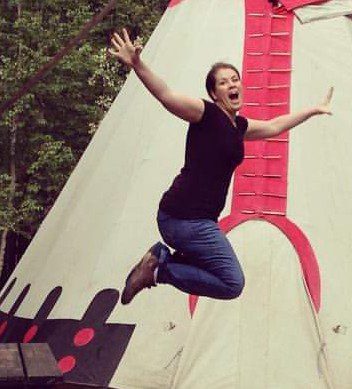 Meet our North Sound Stewards community science volunteer of the quarter, Heather McCracken!
Meet our North Sound Stewards community science volunteer of the quarter, Heather McCracken!
Tell us about yourself! What are a few things you like to do?
Three things in three places: I have the smallest parrot in the pet industry, a formerly feral rabbit, and a poorly (but frequently) played piano in my living room. I have a quart of Lebanese pickled turnips, 350 grams of water buffalo butter, and three hours’ worth of plucked dandelion petals that never got turned into wine in my fridge. I have a Pink Martini CD, a Pink CD and a Bellingham Threshold Singers repertoire binder in my car.
What inspired you to join North Sound Stewards?
I was at a beach skein hosted by the Breazeale Interpretive Center at Padilla Bay, and wished there was a way I could engage more with our amazing coastline without competing for space in activities designed for children or pursuing formal academic coursework. I remembered participating in a midnight beach walk hosted by RE Sources over a decade before and a Google search led me to the North Sound Stewards program.
What has been the most fun, memorable, or impactful experience you’ve had as a North Sound Steward?
There was a college-age student from Missouri exploring the tide pools at Larrabee State Park who saw and touched a sea star for the first time. They were really excited to have one of our Beach Steward volunteers available with images of tidal life so they could explore the tide pools even further. I knew I wasn’t the only grown-up to get goofy when I got to experience something in nature for the first time!
Science starts with observation. If we’re already out playing, discovering and interacting with our coastlines, it’s just a matter of honing our observations…and getting that information to the right people.
Which of the North Sound Stewards Community Science programs are you a part of and what are some ways you participate?
So far, I’ve been training and volunteering with the Beach Stewards program, but I’m hoping to make using the plastics monitoring app second-nature when visiting local shorelines on my own. That way I can help track where plastic pollution builds up and work to clean it up.
Tell us something you’ve learned through the program that really sticks with you.
Learning about how midshipman fish guard eggs in such exceptionally shallow water has permanently impacted how I snoop on the beach. The thought can never be unstuck.
I hope people make one change they can control by themselves and one effort to change what they can’t control by themselves — however small, whatever it looks like.
If you had one thing to tell others about community science, what would it be?
Science starts with observation. If we’re already out playing, discovering and interacting with our coastlines, it’s just a matter of honing our observations into what is helpful for different science projects and getting that information to the right people. A professional scientist can determine and communicate which observations would be the most helpful, but can only do so much observation alone.
Think of the value of a whole community’s worth of observational data for that same scientist to incorporate into research! Learn what an invasive European green crab looks like and who to tell if you see one. Take an extra step to photograph the trash you collect. Learn to distinguish between a healthy and unhealthy sea star. Do any of this and your trip to the beach just qualified as community science!
How do you hope people will stay connected with protecting our waters during this time?
There are so many important, urgent causes competing for our attention and emotional energy in our increasingly connected world. I hope people can find a meaningful sense of connection by embracing the power of one small change. Make one, small change in your behavior toward (or your understanding of) our coastlines — something you have the power to control yourself. This could be committing to pick up after your dog even if it makes you feel silly or taking the time to install and use the iNaturalist app at least once
Choose something simple and easily achievable because sometimes an easy win is the best motivator. Then make one small effort to change our society’s behavior, something your individual actions can’t alter on their own. For example, learn where to look to find proposed policy efforts to protect the Salish Sea. Just determining where to find information to take action is a meaningful effort in itself. Donate a latte’s worth of aid to a group that is able to do this work full-time. Small efforts count and they keep you from becoming overwhelmed and paralyzed by moral fatigue.
I hope people make one change they can control by themselves and one effort to change what they can’t control by themselves — however small, whatever it looks like. Kudos to everyone for getting that far!
